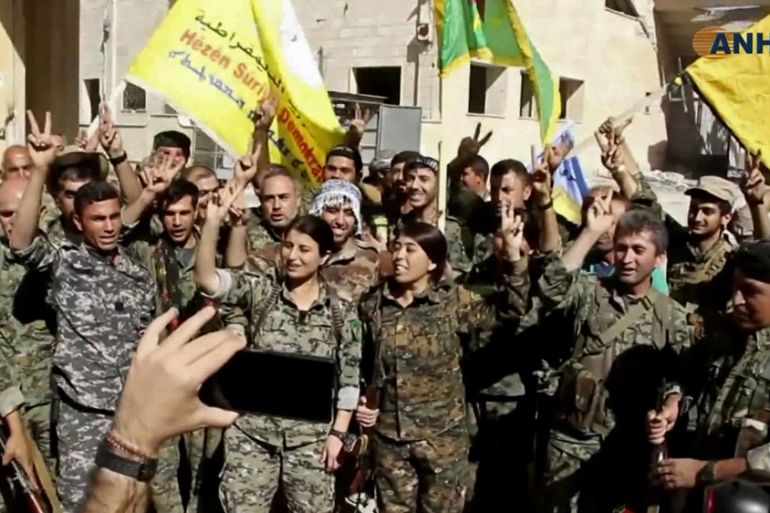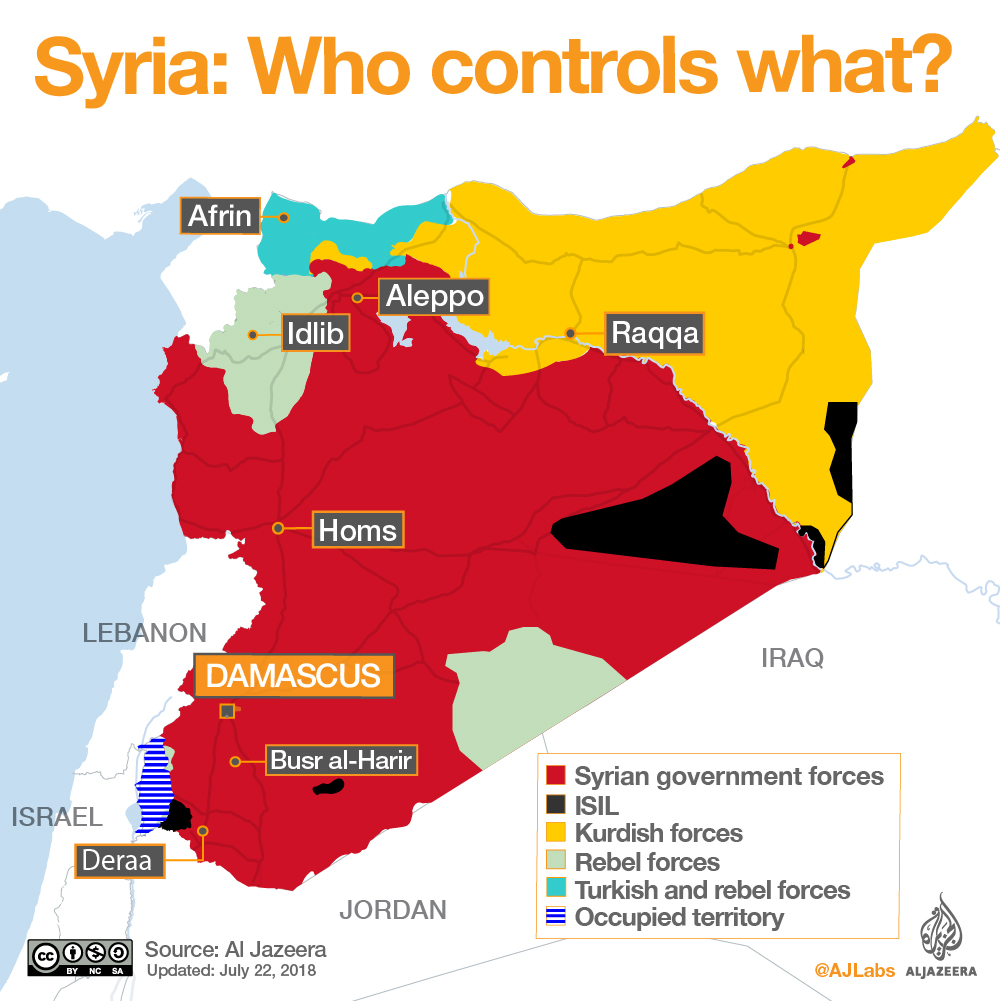Syria: Kurdish delegation in Damascus for talks with government
US-backed Kurdish forces, which control more than a quarter of Syrian territory, will likely push for regional autonomy.

A delegation from the United States-backed Kurdish Syrian Democratic Forces (SDF) is in Syria’s capital for talks on the future of the large swath of territory it holds in the country’s northeast.
The Syrian Democratic Council (SDC) officials are paying a first official visit to Damascus at the invitation of the government.
Keep reading
list of 4 itemsTurkey hits 71 targets in Iraq, Syria in retaliation for soldiers’ deaths
Turkey says bombers came from Syria, threatens more cross-border strikes
‘Iraqis love life’: In conversation with Ala Talabani
They will seek to address the future of the areas under the group’s control, which extends beyond the minority’s historical heartland.
“We are working towards a settlement for northern Syria,” the council’s Arab co-chair Riad Darar said on Friday.
“We hope that the discussions on the situation in the north will be positive,” Darar added, noting that they were being held “without preconditions”.
The delegation arrived in Damascus two days ago. It is headed by Ilham Ahmed, the SDC’s executive head.
While the talks will revolve primarily around service provision in the areas controlled by the Kurdish-led authorities, Darar said there is no set agenda with the talks possibly widening to include political and security matters.
Analysts say the visit could be used by the Kurdish leadership to preserve the region’s status quo and the minority’s aspirations for regional autonomy within the framework of a decentralised, federal structure.
While the meetings did not mark the start of negotiations, Darar signalled that this was the aim, saying it was time to “solve our problems ourselves”.
“We have a basis for negotiations,” he added.

Dispute with Turkey
The SDF controls more than 27 percent of Syrian territory, according to the UK-based Syrian Observatory for Human Rights.
It holds not only Kurdish-majority areas along the northern border with Turkey but also the Arab-majority city of Raqqa, which the Islamic State of Iraq and the Levant (ISIL, also known as ISIS) group had previously self-declared as its former de facto Syrian capital.
SDF fighters captured the city with support from a US-led coalition last October in their most high-profile victory of the war.
The SDF has since lost the Kurdish enclave of Afrin in northwestern Syria to Turkish-backed rebels, who have also threatened to seize other territory held by the alliance west of the Euphrates River.
Only intervention by Washington has prevented Turkish troops from seizing the hard-won town of Manbij from the SDF, whose Kurdish units have pulled back.
Ankara views the Kurdish-led alliance as a terrorist group because of its links to the Kurdistan Workers’ Party (PKK), an outlawed rebel group that has been fighting Turkish troops since 1984.
Constitutional recognition
Damascus also views Kurdish aspirations with suspicion and President Bashar al-Assad in late May threatened to resort to force if necessary to prevent SDF-held areas breaking away.
The SDF backs a federal Syria made up of autonomous cantons in the various regions, including the Kurdish-majority areas of Hasakeh and Kobane.
It has already set up cantonal administrations in areas under its control which raise their own revenues and operate their own police and other services.
In a first for Syria, the SDF runs Kurdish-medium schools, although it also recognises the rights of other linguistic groups, including the Assyrian Christians.
A Kurdish legislator who sits in the national parliament in Damascus said the talks with the SDF would focus on confining its ambitions to the cultural sphere with central government control restored in areas under its control.
Damascus wanted the SDF to “facilitate the entry of the Syrian army and the return of state institutions into Kurdish-majority areas east of the Euphrates”, legislator Omar Usi said.
In return, it was offering “constitutional recognition for the Kurdish community and its cultural rights.”
It is likely to be a tough pill for the SDF to swallow as it continues to take losses while fighting with ISIL in desert areas close to the Iraq border.
The alliance has implemented much of the leftist ideology of its main Kurdish component, the People’s Protection Units (YPG), including strict equality for women in all public offices.
The Kurdish flag and images of jailed PKK leader Abdullah Ocalan are ubiquitous in SDF-held areas.